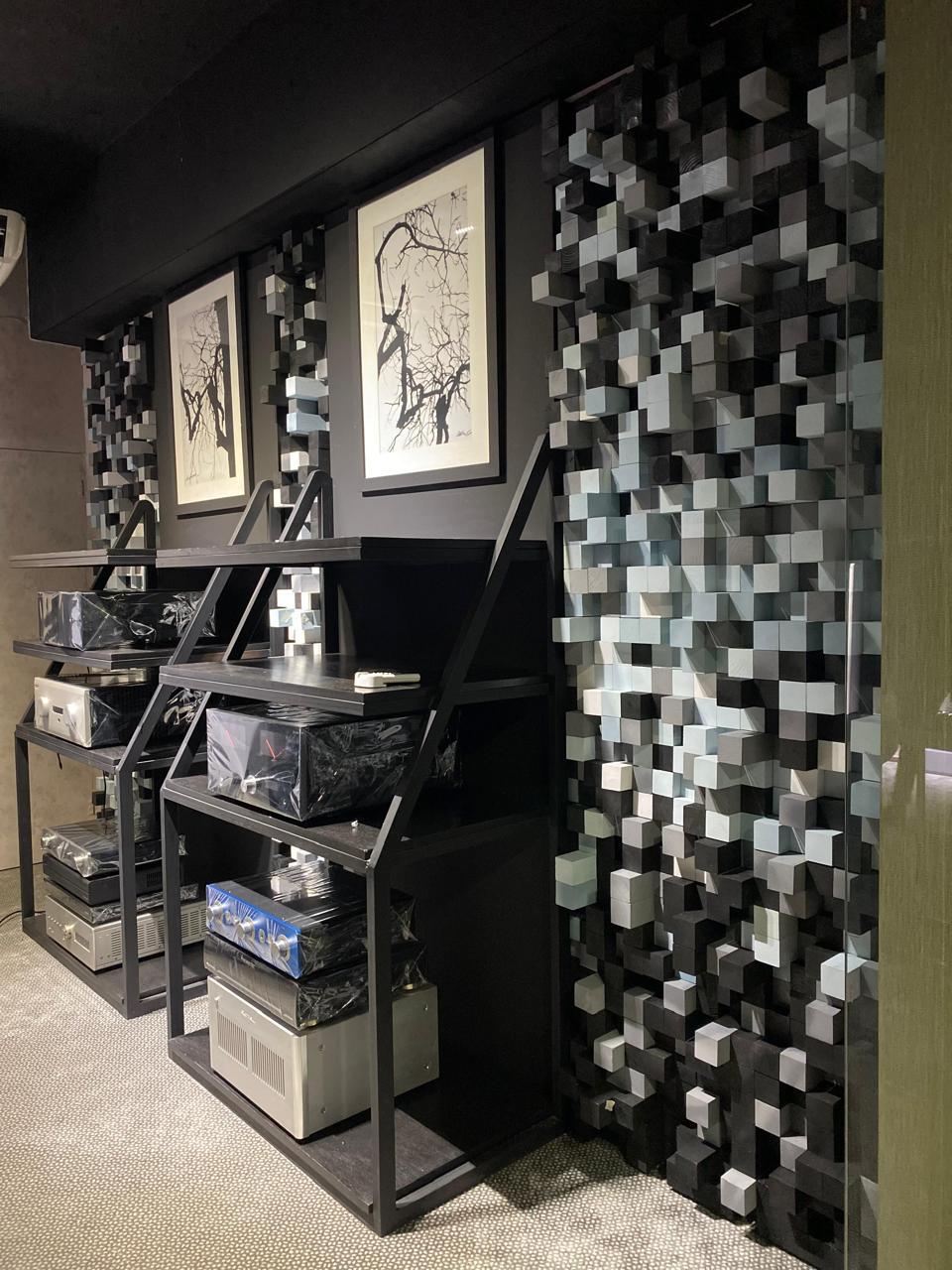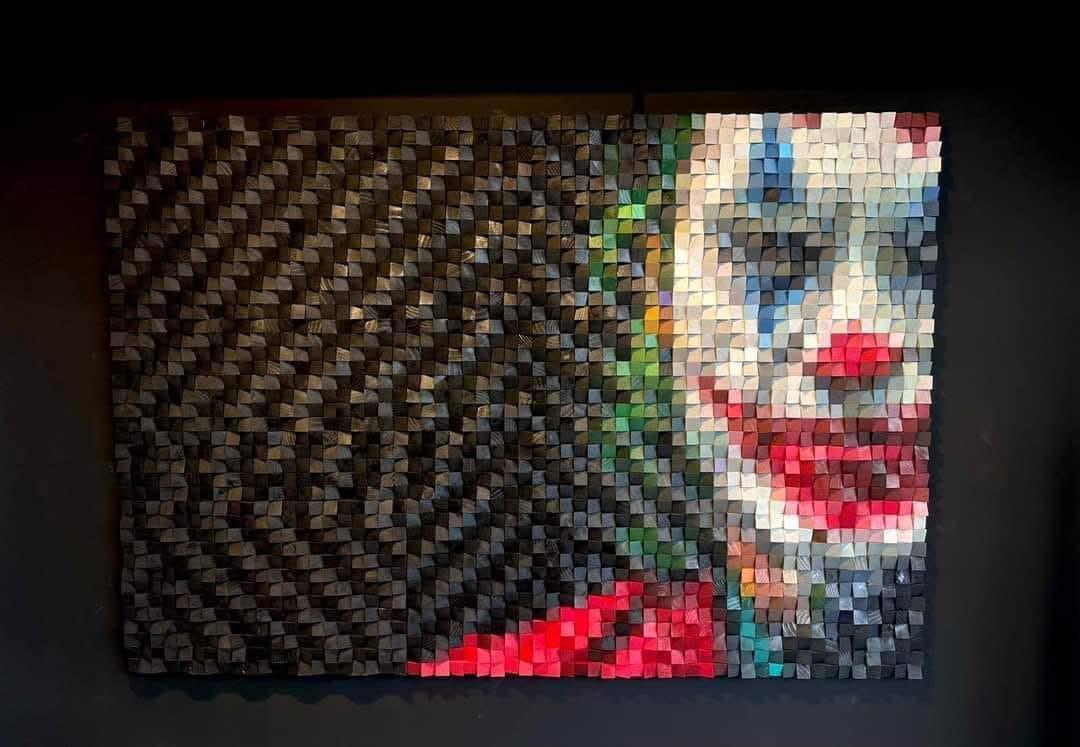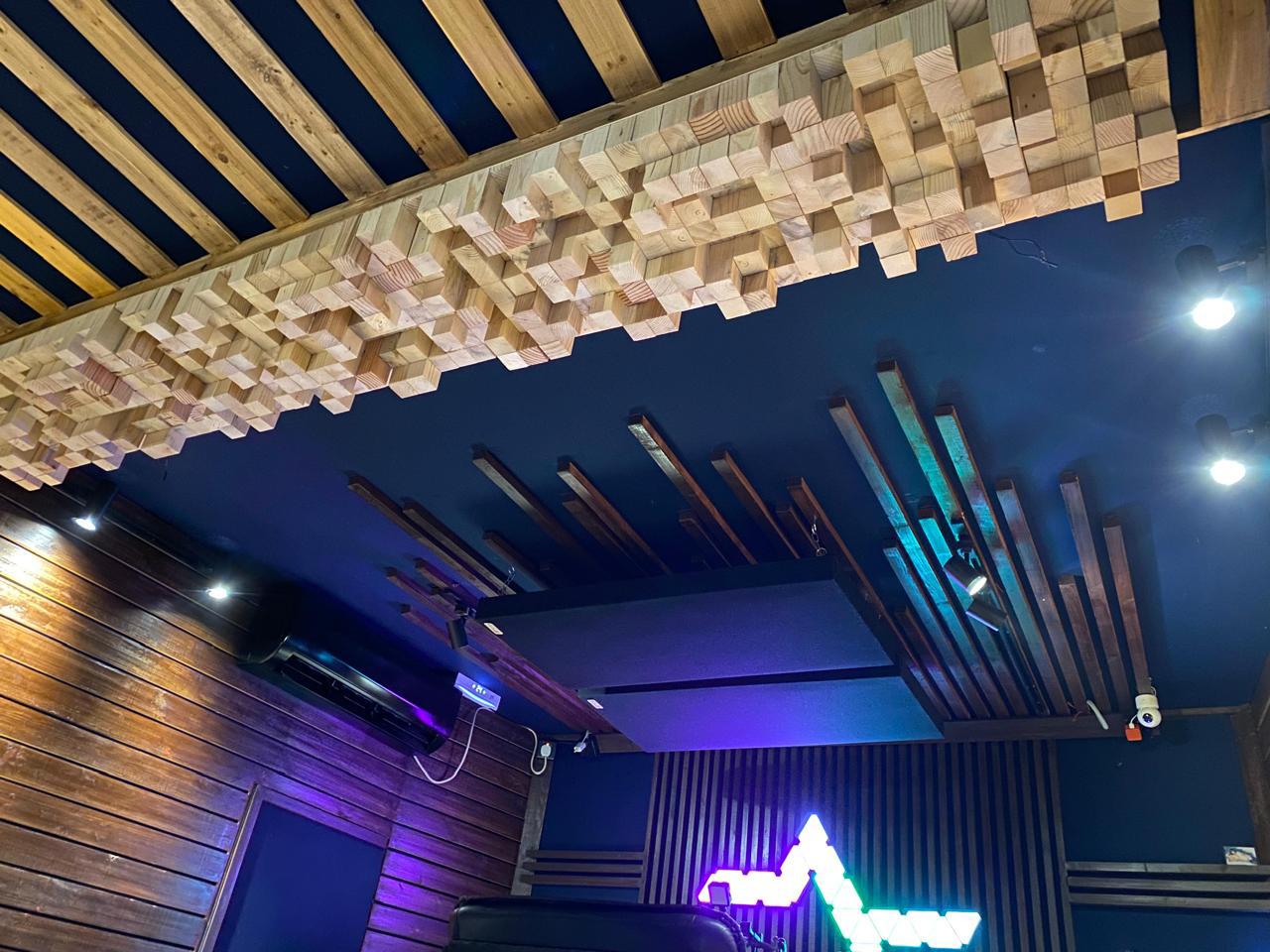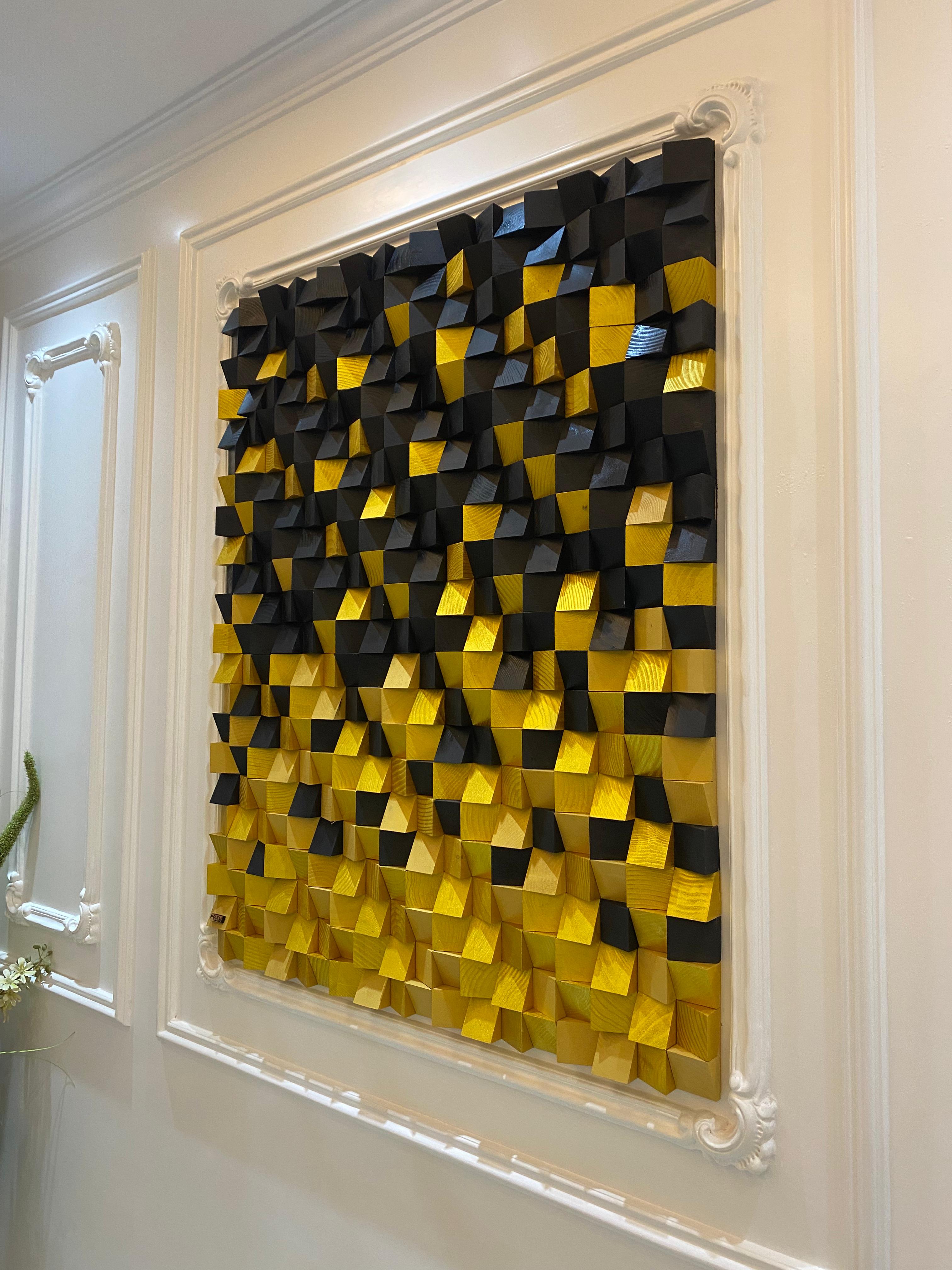Young entrepreneurs transform traditional art with 3D pixel innovation in Bangladesh
Young entrepreneurs transform traditional art with 3D pixel innovation in Bangladesh

In a small bedroom in Bangladesh, two university students have revolutionised the concept of wall art by creating stunning three-dimensional pieces using wooden blocks that function like digital pixels.
Two brothers, Bangladesh University of Textiles student Saimon Hossain Ratul and Gopalganj University of Science and Technology student Mehraz Hossain Shawon, established PIXEL Studio, pioneering a unique art form that’s capturing attention across the country.
What is PIXEL studio?
PIXEL Studio creates 3D wall art pieces for home decoration, commonly known as Pixel Art. These artworks are entirely handmade using kerosene wood and acrylic paint, with each piece being unique. The organisation has been crafting these distinctive art pieces for the past four years and currently holds the distinction of being the only producer of this type of artwork in Bangladesh. Their mission is ambitious: to popularise Pixel Art across Bangladesh whilst expanding to international markets.
“We want our artwork to adorn the walls of every art lover’s home in Bangladesh.’’

The journey began during the Covid-19 pandemic when personal tragedy struck the family. Shaown, an architecture student at Gopalganj University of Science and Technology, had always been drawn to creating things with his hands – from kites and planes to sculptures made from stone and clay. His younger brother Ratul, a student at Bangladesh University of Textiles in the Wet Process Engineering department, shared a similar passion for drawing fantasy characters like Iron Man and Spider-Man, and creating paper crafts.
When their father suffered two strokes in 2020, severely affecting the family’s financial stability, the brothers needed to find a way to contribute to household income. The turning point was when Shaown created a portrait of Rabindranath Tagore using wooden blocks during his first year at university whilst working on a project simply named “Pixel”. After that project received considerable praise, their elder sister made a brilliant observation, “This type of art is very popular in Europe, but no one makes it in Bangladesh yet. Since we already create this type of work, why not start selling it online?”
That suggestion became the foundation of their entrepreneurial journey.
The first artwork and early challenges
Initially, the brothers were uncertain about many aspects of their venture. They questioned what paint to use, where to source wood, how to price their products, and how to secure online orders. After extensive research, they gradually gathered the necessary information and visited Old Dhaka to source wood, cut it into specific shapes, and painted it to create their first piece.

They uploaded a photo of their artwork to a newly created online page and, after some small-scale marketing, began receiving messages from interested customers. Finally, someone purchased their first piece – a moment they still remember vividly, working from their bedroom with the entire floor covered in paint.
Building a business block by block
In June 2021, the brothers officially launched PIXEL Studio with just Tk10,000 in capital after selling their first piece and realising there was real demand for this type of work in Bangladesh. They used that small investment to buy wood and paint, launching their operations modestly.

Their process involves creating 3D models, sourcing wood scraps from sawmills, cutting them into specific shapes, and painting them before arranging them on plywood to create wall-hangable art pieces that resemble three-dimensional paintings. The name “PIXEL Studio” reflects their core concept – using small blocks to represent any scene or figure, much like digital pixels create images on screens.
Overcoming growth challenges
The biggest challenge was time management. As students, finishing just one piece often took 10-20 days, sometimes even a month. Even when there was demand, they had to reject orders due to exams or classes. This led to a crucial realization, “If a business stops without your presence, it’s not a sustainable business.” So they made the decision to hire people.
They rented a room and hired three female artisans. After two weeks of training, these workers began collaborating with them. Over time, the workload eased, and the artisans became more skilled and independent. Today, PIXEL Studio employs five full-time artisans, demonstrating significant growth from its humble beginnings.
Recognition and notable projects
Over the past four years, the studio has created more than 100 unique art pieces. Their work has found its way into prestigious locations, with some of their most notable projects including: Bangladesh Military Museum, Mymensingh Cantonment, project with, an eye hospital interior project and more.

These projects showcase the versatility of their pixel art technique and demonstrate how the medium has gained acceptance across various sectors, from military institutions to healthcare facilities.
Diversification and innovation
The brothers have also expanded their offerings beyond traditional pixel art. They’ve developed “sound diffusers” – artistic pieces that help reduce sound echo, adding a functional dimension to their creative work. This innovation demonstrates their commitment to combining aesthetics with practical applications.
Vision for the future
PIXEL Studio’s mission extends beyond individual sales. The brothers aim to popularise pixel art across Bangladesh whilst expanding to international markets. Their comprehensive future plans include: hiring additional artisans to increase production capacity, developing technology-driven production processes for efficiency, establishing export capabilities for international markets, creating a dedicated website and mobile app to enhance online presence, expanding into both residential and office spaces nationwide etc.
A unique market position
Currently, PIXEL Studio holds the distinction of being the only producer of this type of artwork in Bangladesh, despite its popularity in European markets. This unique position, combined with their handcrafted approach, growing institutional recognition, and expansion from bedroom startup to employing five full-time artisans, positions them well for continued growth in both domestic and international markets.
From a family crisis emerged an innovative business that not only supports their household but also introduces Bangladesh to a new form of artistic expression. The brothers’ journey from university students painting in their bedroom to established entrepreneurs with institutional clients demonstrates how creativity, determination, and strategic thinking can transform personal challenges into groundbreaking business opportunities.


